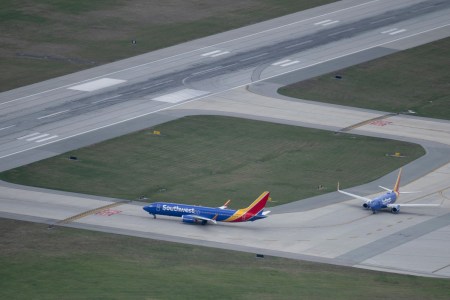Southwest Airlines (SWA) is done playing the middle. In a statement Thursday, the Texas airline announced that it would adopt assigned seating, a major pivot from its decades-long do-it-yourself policy. The change comes in the wake of an unprecedented financial downturn for Southwest, which reported losses in the fourth quarter of 2023 and the first of 2024. Though it was once the most lucrative airline in the nation, Southwest has dipped well below Delta, United and American, the Holy Trinity of high-premium carriers with strict seat assignment.
In June, Elliott Investment Management (EIM), an activist fund based in West Palm Beach, purchased a $1.9 billion stake in Southwest. Following their acquisition, the firm released a statement bashing SWA’s profitability and demanding a dramatic executive restructuring, citing a 50% drop in share price from 2021. “Southwest’s poor execution and leadership’s stubborn unwillingness to evolve the company’s strategy have led to deeply disappointing results,” wrote EIM. “Southwest’s rigid commitment to a decades-old approach has inhibited its ability to compete in the modern airline industry.”
In addition to their financial difficulties, a series of safety-related follies has left Southwest afoul of the FAA. In the past four months alone, the carrier has had five “near-misses,” including one last week in which a jet hovered just 150 feet above Tampa Bay. While passengers and aircraft experts called the incident “near-fatal,” Southwest’s PR team did not explain exactly what went wrong. “Southwest is working closely with the Federal Aviation Administration in the review of recent events,” a spokesperson told the Tampa Bay Times. “Nothing is more important to Southwest than the safety of our customers and employees.”
Boeing Woes Continue as Engine Cover Rips Off Southwest Plane
The incident happened during takeoff in Denver, forcing the flight to turn aroundAt the cross-section of safety and financial concerns is Southwest’s reliance on the Boeing 737, which constitutes the entirety of its 817-jet fleet. Malfunctions in the past five years have caused slowdowns in Boeing production, including a full grounding of 737 Max models in 2019 following two catastrophic crashes. Southwest is also at the whims of its long-outdated computer tech, which collapsed in 2022 following a holiday season storm. In the aftermath of that incident, SWA cancelled 17,000 flights, totaling a loss of close to $1 billion.
In Southwest’s Thursday morning press release, CEO Bob Jordan noted that “extensive research makes clear [assigned seating] is the right choice.” Among the justifications for the monumental change was a statistic, which held that “80% of Southwest Customers, and 86% of potential customers, prefer an assigned seat.” The methodology behind those figures was not immediately clear.
In addition to the elimination of its six-decade open seating policy, Southwest announced its intent to add new classes of tickets, including “a premium, extended legroom portion of the cabin.” The airline will also offer red-eye flights for the first time, servicing a handful of airports nationwide — Las Vegas, Los Angeles and Orlando are among the inaugural group.
The common man will be ecstatic to hear that Southwest made no changes to its baggage policy, which allows each passenger two checked bags, free of charge. That decision keeps SWA precariously balanced between budget airlines and premium carriers, most of which make a point of charging extra.
Between peaking fuel costs, predatory investors and broken Boeings, it’s a difficult moment for Southwest. Nonetheless, company execs have made a covenant to keep their eyes trained on progress: “The decision to update the seating and boarding model is part of Southwest’s ongoing modernization efforts,” read Thursday’s press release. “The addition of assigned and premium seating will give customers more choice and is expected to further enhance the all-in value Southwest Airlines is known for.”
This article was featured in the InsideHook newsletter. Sign up now.



















